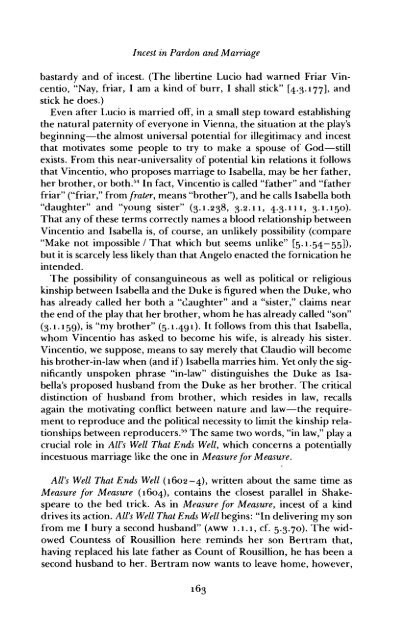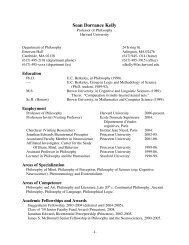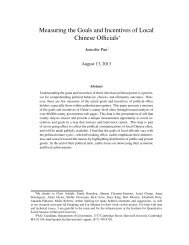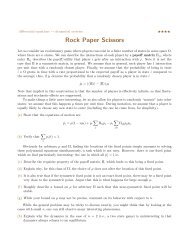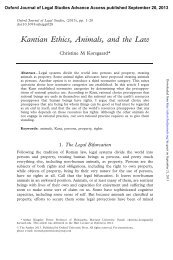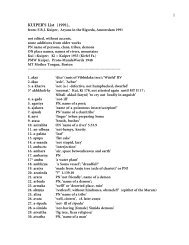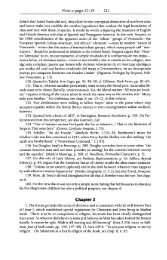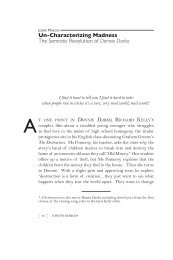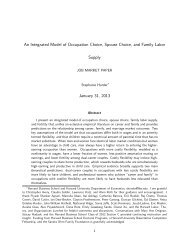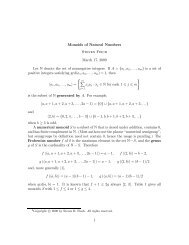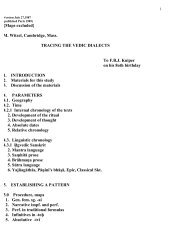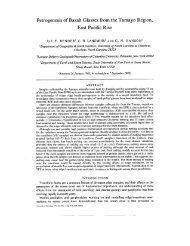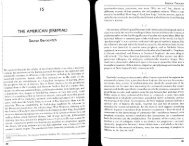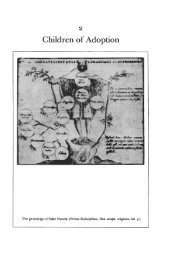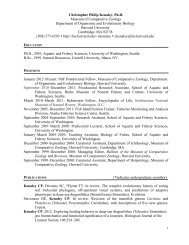Incest in Pardon and Marriage - People Fas Harvard
Incest in Pardon and Marriage - People Fas Harvard
Incest in Pardon and Marriage - People Fas Harvard
Create successful ePaper yourself
Turn your PDF publications into a flip-book with our unique Google optimized e-Paper software.
<strong>Incest</strong> <strong>in</strong> <strong>Pardon</strong> <strong>and</strong> <strong>Marriage</strong><br />
bastardy <strong>and</strong> of <strong>in</strong>cest. (The libert<strong>in</strong>e Lucio had warned Friar V<strong>in</strong>-<br />
centio, "Nay, friar, I am a k<strong>in</strong>d of burr, I shall stick" [4.3.177], <strong>and</strong><br />
stick he does.)<br />
Even after Lucio is married off, <strong>in</strong> a small step toward establish<strong>in</strong>g<br />
the natural paternity of everyone <strong>in</strong> Vienna, the situation at the play's<br />
beg<strong>in</strong>n<strong>in</strong>g-the almost universal potential for illegitimacy <strong>and</strong> <strong>in</strong>cest<br />
that motivates some people to try to make a spouse of God-still<br />
exists. From this near-universality of potential k<strong>in</strong> relations it follows<br />
that V<strong>in</strong>centio, who proposes marriage to Isabella, may be her father,<br />
her brother, or both.54 In fact, V<strong>in</strong>centio is called "father" <strong>and</strong> "father<br />
friar" ("friar," from frater, means "brother"), <strong>and</strong> he calls lsabella both<br />
"daughter" <strong>and</strong> "young sister" (3.1.238, 3.2.1 1, 4.3.1 11, 3.1.150).<br />
That any of these terms correctly names a blood relationship between<br />
V<strong>in</strong>centio <strong>and</strong> Isabella is, of course, an unlikely possibility (compare<br />
"Make not impossible / That which but seems unlike" [5.1.54-55]),<br />
but it is scarcely less likely than that Angelo enacted the fornication he<br />
<strong>in</strong>tended.<br />
The possibility of consangu<strong>in</strong>eous as well as political or religious<br />
k<strong>in</strong>ship between Isabella <strong>and</strong> the Duke is figured when the Duke, who<br />
has already called her both a "daughter" <strong>and</strong> a "sister," claims near<br />
the end of the play that her brother, whom he has already called "son"<br />
(3.1. i 59), is "my brother" (5.1.49 I). It follows from this that Isabella,<br />
whom V<strong>in</strong>centio has asked to become his wife, is already his sister.<br />
V<strong>in</strong>centio, we suppose, means to say merely that Claudio will become<br />
his brother-<strong>in</strong>-law when (<strong>and</strong> if) Isabella marries him. Yet only the sig-<br />
nificantly unspoken phrase "<strong>in</strong>-law" dist<strong>in</strong>guishes the Duke as Isa-<br />
bella's proposed husb<strong>and</strong> from the Duke as her brother. The critical<br />
dist<strong>in</strong>ction of husb<strong>and</strong> from brother, which resides <strong>in</strong> law, recalls<br />
aga<strong>in</strong> the motivat<strong>in</strong>g conflict between nature <strong>and</strong> law-the require-<br />
ment to reproduce <strong>and</strong> the political necessity to limit the k<strong>in</strong>ship rela-<br />
tionships between reproduce^-s.55 The same two words, "<strong>in</strong> law," play a<br />
crucial role <strong>in</strong> All's Well That Ends Well, which concerns a potentially<br />
<strong>in</strong>cestuous marriage like the one <strong>in</strong> Measure for Measure.<br />
All's Well That Ends Well (1602-4), written about the same time as<br />
Measure for Measure (1604), conta<strong>in</strong>s the closest parallel <strong>in</strong> Shake-<br />
speare to the bed trick. As <strong>in</strong> Measure for Measure, <strong>in</strong>cest of a k<strong>in</strong>d<br />
drives its action. All's Well That Endr Well beg<strong>in</strong>s: "In deliver<strong>in</strong>g my son<br />
from me I bury a second husb<strong>and</strong>" (AWW 1.1.1, cf. 5.3.70). The wid-<br />
owed Countess of Rousillion here rem<strong>in</strong>ds her son Bertram that,<br />
hav<strong>in</strong>g replaced his late father as Count of Rousillion, he has been a<br />
second husb<strong>and</strong> to her. Bertram now wants to leave home, however,


